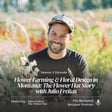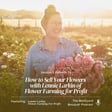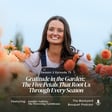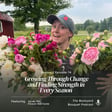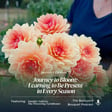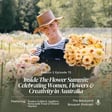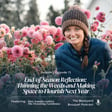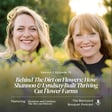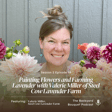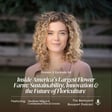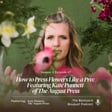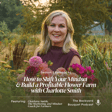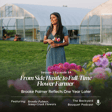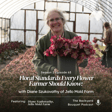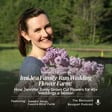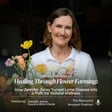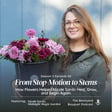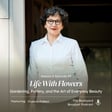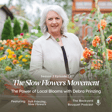
Ep. 28 How Creating On-Farm Events Has Created Success For Justine Ludwig
Have you ever wondered what it takes to transform a traditional farm into a thriving event venue? In this episode, Justine Ludwig joins us to share her story of transitioning Coastal Black from a dairy farm to a vibrant event space, hosting popular festivals like their annual pumpkin festival and tulip festival. Justine's experience highlights the importance of diversifying farm activities, engaging with the community, and adapting to challenges in the farming industry.
Discover the logistics behind creating a safe and aesthetically pleasing event space on a working farm, including considerations for liability insurance and visitor experience. Learn how Justine's innovative approach, feedback from professionals like photographers, and community support have contributed to the success of Coastal Black's events.
Tune in to this episode for valuable insights on flower farming, event planning, and the resilience required to overcome obstacles in the agricultural world. Justine Ludwig's journey at Coastal Black is a testament to the power of innovation, community collaboration, and unwavering determination in the farming industry.
In This Episode You’ll Hear About:
00:02:21 - Justine's Journey: From City Life to Farm Life
00:03:45 - Transition from Dairy Farming to Beekeeping
00:04:49 - Starting the Pumpkin Festival
00:06:22 - Launching the Tulip Festival
00:08:25 - Diversifying Farm Revenue Streams
00:09:57 - Challenges and Benefits of Growing Tulips in Crates
00:12:34 - Soil Management and Composting
00:14:26 - Overview of Coastal Black Farm's Acreage and Operations
00:18:04 - Tulip Festival Visitor Experience
00:23:06 - Impact of Weather on Tulip Festival
00:26:06 - Community Support and Resilience
00:31:04 - Adding New Features to Festivals
00:33:07 - Logistics of Creating an Event Space on a Farm
00:36:09 - Enhancing Visitor Experience with Aesthetic Improvements
00:38:03 - Flexibility and Adaptability in Event Planning
00:39:07 - Consulting Professionals for Event Space Design
00:41:57 - Golden Hour Sessions for Photographers
00:44:24 - Liability and Insurance for Farm Events
Learn More About Justine Black:
- Instagram: www.instagram.com/justineludwig.co/
- https://stan.store/JustineLudwig
- Coastal Black: https://coastalblack.ca/
Sign up for our newsletter: https://thefloweringfarmhouse.myflodesk.com/nlw4wua8s3
***Rate, Review, & Follow The Backyard Bouquet***
If you enjoyed this episode, will you please consider leaving the podcast a review? Your review helps make the podcast more discoverable to others and allows me to continue creating more episodes. I'd love to know what you enjoyed most about the episode.
New episodes every Tuesday to help keep your garden blooming!
